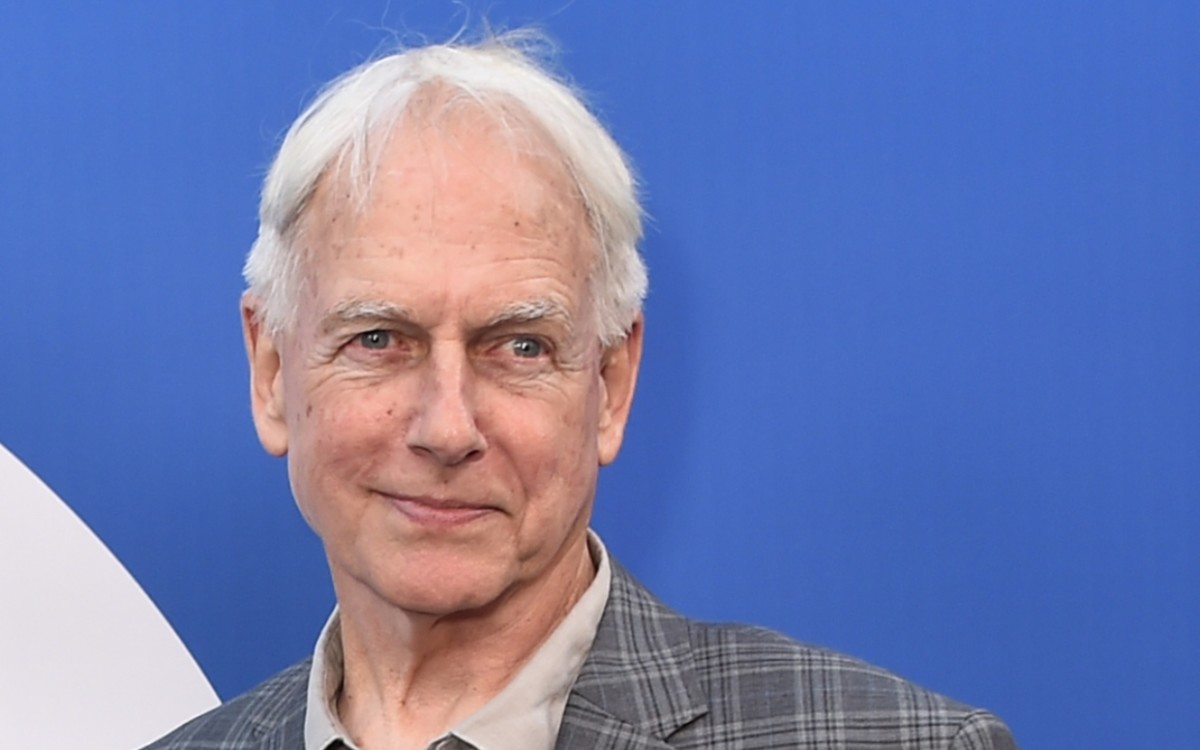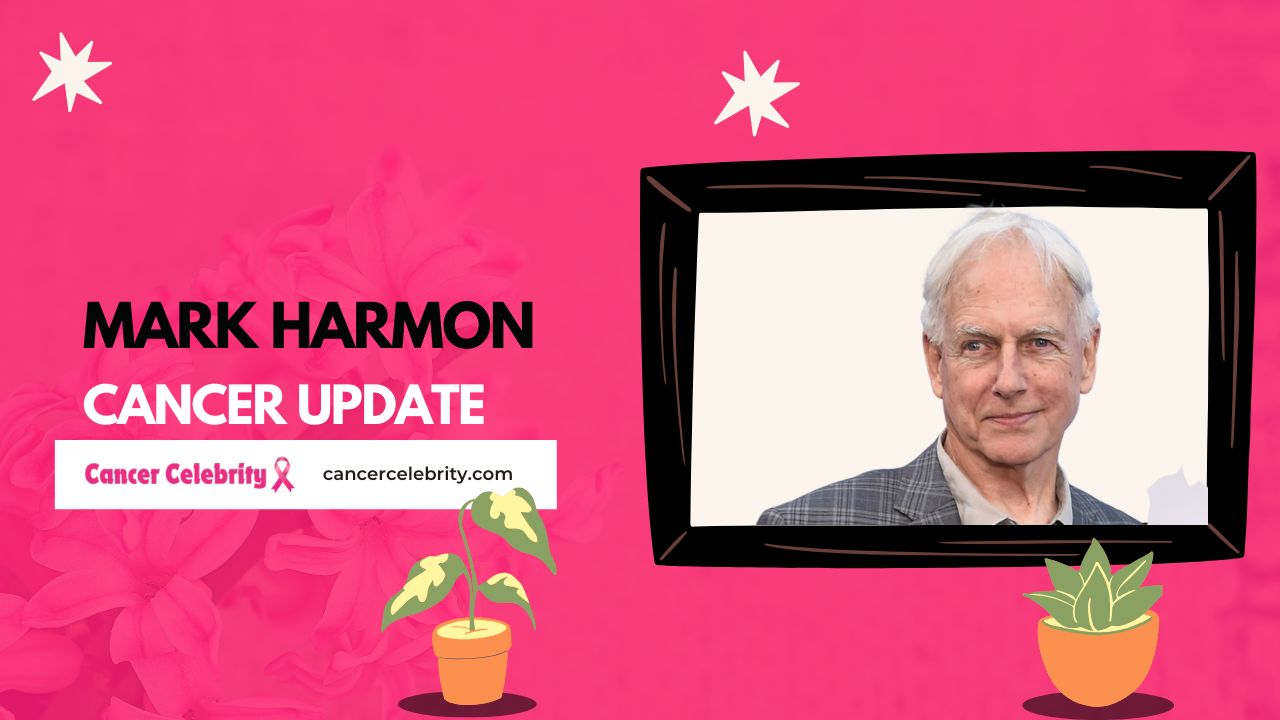Mark Harmon, a beloved figure in the entertainment industry, has captivated audiences for decades with his nuanced performances and undeniable charm. Best known for his iconic role as Special Agent Leroy Jethro Gibbs in the long-running series “NCIS,” Harmon has become synonymous with strength, resilience, and dedication to his craft. His impressive career has not only earned him a legion of devoted fans but also solidified his status as one of Hollywood’s most respected actors. However, recent whispers regarding Mark’s health have sent shockwaves through the fan community, igniting concern and speculation that merit our attention.
The latest news surrounding Mark Harmon involves unsettling cancer rumors that have sparked widespread debates across social media platforms and entertainment news outlets. With such speculation comes a wave of curiosity; fans are eager to discern fact from fiction while worrying for a man who has contributed so much positivity to their lives. As we delve deeper into this pressing issue—exploring the origins of these rumors, examining their implications, and considering how they affect both Harmon’s life and his dedicated supporters—it becomes paramount to navigate these discussions with empathy and responsibility. Join us as we sift through the noise to uncover the real story behind the headlines about Mark Harmon’s health.
Background on Mark Harmon’s Health Journey

Mark Harmon, celebrated for his iconic role as Leroy Jethro Gibbs on the long-running series “NCIS,” has enjoyed a career that spans over three decades. Though he is widely regarded for his acting prowess and charm, behind the scenes, his health journey has had its share of ups and downs. In the past, there have been whispered concerns regarding Harmon’s physical well-being. Notably, in 2018, some fans expressed apprehension about his noticeable weight loss and fatigue while starring on “NCIS.” Such observations often lead to questions about possible underlying health conditions, fueling discussions surrounding celebrity health updates.
The significance of spotlighting celebrities’ health issues cannot be understated. When public figures like Harmon share their personal experiences with illness or recovery, it sheds light on wider societal issues regarding health awareness and accessibility to care. These narratives can motivate fans and the general public to seek preventive care or engage in open conversations with medical professionals regarding their own lives—essentially reducing stigma around discussing health-related matters. Moreover, they serve as valuable reminders that even those in the limelight are not immune to challenges associated with well-being.
In an age where information spreads quickly through social media platforms and entertainment news outlets, celebrity health intrigues often captivate audiences. This leads to rampant speculation whenever an actor appears out of sorts or seeks time away from their career commitments. For Mark Harmon, rumors occasionally swirl around discussions of cancer or other serious ailments—even in contexts where credible evidence remains scant. Given these dynamics, it’s vital to balance curiosity with empathy when navigating such sensitive topics involving beloved stars while maintaining respect for their privacy during difficult times.
The Origins of Health Rumors
In recent months, the NCIS star’s health has become a focal point for fans and media outlets alike. The rumors surrounding Mark Harmon took off following observations made during his occasional absences from the set and a few public appearances that left fans concerned. Speculations about his health intensified when he appeared thinner in certain photos circulated online. Moreover, with Harmon’s long-standing role in a major television series, any shift in his physical appearance raises red flags among dedicated viewers who have invested years into watching him on screen.
Social media has played a critical role in amplifying these concerns. With platforms like Twitter and Instagram acting as double-edged swords for celebrities, they can both promote direct engagement with fans while also contributing to misinformation spreads at lightning speed. In Harmon’s case, it didn’t take long for users to start sharing unverified theories about his health state—a narrative often sensationalized by tabloid headlines needing quick clicks. Entertainment news outlets quickly picked up on these whispers, feeding into a cycle where conjecture became indistinguishable from news. The rapid-fire delivery of information on these platforms made separating fact from fiction increasingly difficult for worried fans.
As is common in the age of digital storytelling, the thirst for new content frequently outpaces factual reporting. While it’s understandable that Harmon’s loyal fanbase would want updates about their beloved actor’s welfare, especially given his iconic status in shows like NCIS, it’s crucial to approach such discussions critically. Contextually grounded storytelling helps mitigate unnecessary panic or concern over ill-founded health rumors while emphasizing the importance of seeking out verified information rather than succumbing to speculation driven mostly by social media chatter.
Understanding how these rumors are formed doesn’t merely provide clarity; it also highlights an ongoing issue related to how public figures’ personal lives become fodder for speculation. For Mark Harmon and many other stars facing similar scrutiny, navigating this terrain requires handling transparency delicately—evoking concern without inciting excessive worry—an endeavor complicated by pervasive social commentary and immediacy of today’s media landscape.
Analyzing the Speculations About Cancer
In recent weeks, speculation surrounding Mark Harmon’s health has taken a distressing turn, particularly concerning unfounded claims about cancer. Some rumors have suggested that the beloved “NCIS” star is battling a severe illness, leading fans to express their concern en masse. These claims often arise from misinterpretations of public appearances or even playful banter among interview co-stars. For instance, when Harmon appeared slightly thinner during a promotional event, it sparked an avalanche of commentary across social media platforms linking his appearance directly to cancer-related health issues.
However, upon closer inspection, these alarming narratives lack substantial verification. Most of the revelations circulating online are fortified by hearsay rather than credible medical sources or official statements from Harmon’s camp. The curious juxtaposition between celebrity and vulnerability creates a vacuum where misinformation can flourish unchecked. Fans tend to fill in gaps with speculative narratives that may not bear any resemblance to reality. Moreover, myths such as “Mark Harmon cancer” receive traction not necessarily because they are grounded in fact but more due to people’s natural inclination to sensationalize stories surrounding famous figures.
The ripple effect of such unfounded claims inevitably shapes the public perception of celebrities’ health as shrouded in secrecy or misinformation. When stars like Mark Harmon face scrutiny regarding rumored illnesses, it poses ethical questions about our right to speculate on someone else’s wellbeing. Many forget that behind the scenes lies a person who deserves privacy during challenging times—realities which get overshadowed by dramatic headlines and anxious fandoms. As disquiet grows around these topics, both media outlets and fans alike must seek reliable data before jumping to conclusions based on snippets rather than comprehensive evidence.
As advocates for transparency within entertainment journalism bemoan this wave of baseless speculation, it underscores an essential truth: Until credible information surfaces regarding Mark Harmon’s health status—or any other public figure—the truth about Mark Harmon’s illness remains just that—unknown. Engaging with facts instead of assumptions will allow fans and commentators alike to approach such matters with empathy while fostering a more respectful dialogue around celebrity health discussions.
Public Responses and Reactions
As rumors surrounding Mark Harmon’s health began to circulate, fans took to social media platforms to express their concerns and support for the beloved actor. Websites, Twitter feeds, and fan forums overflowed with messages of love and well-wishes, as followers shared their memories of his iconic roles on shows like “NCIS.” The sense of community among fans came through vividly; many noted how Harmon had played a significant part in their lives over the years. This outpouring of affection reflects not only a deep admiration for his work but also a genuine concern for his well-being amidst the shadow of health speculation in Hollywood.
However, such rampant speculation can take an emotional toll on celebrities. For instance, actors like Doug Davidson have previously dealt with similar situations where narratives about their health were published without sufficient context or accountability. The pressure of public scrutiny can lead to anxiety and distress for stars who prefer to keep certain aspects of their lives private. As fans rally behind them out of concern, they also must grapple with the reality that these individuals are entitled to privacy regarding personal matters—especially when it comes to sensitive topics like health.
The implications extend beyond the individual level and highlight a broader conversation about celebrity privacy. While it is understandable that fans feel invested in the lives of those they admire, it becomes essential to differentiate between legitimate care for a person’s well-being and mere gossip-driven speculation. The emotional burden this puts on celebrities is often overlooked; they navigate not just their personal challenges but also a world eager for details at any cost. Ultimately, fostering an environment where compassion outweighs curiosity could significantly change how celebrity health issues are discussed in the public realm.
With these considerations in mind, it remains crucial for both media outlets and fans to approach topics concerning celebrity health with sensitivity. Understanding that behind every rumor lies a human being deserving respect can make all the difference in promoting mental wellness within the industry—even while maintaining enthusiastic fandoms and community connections.

